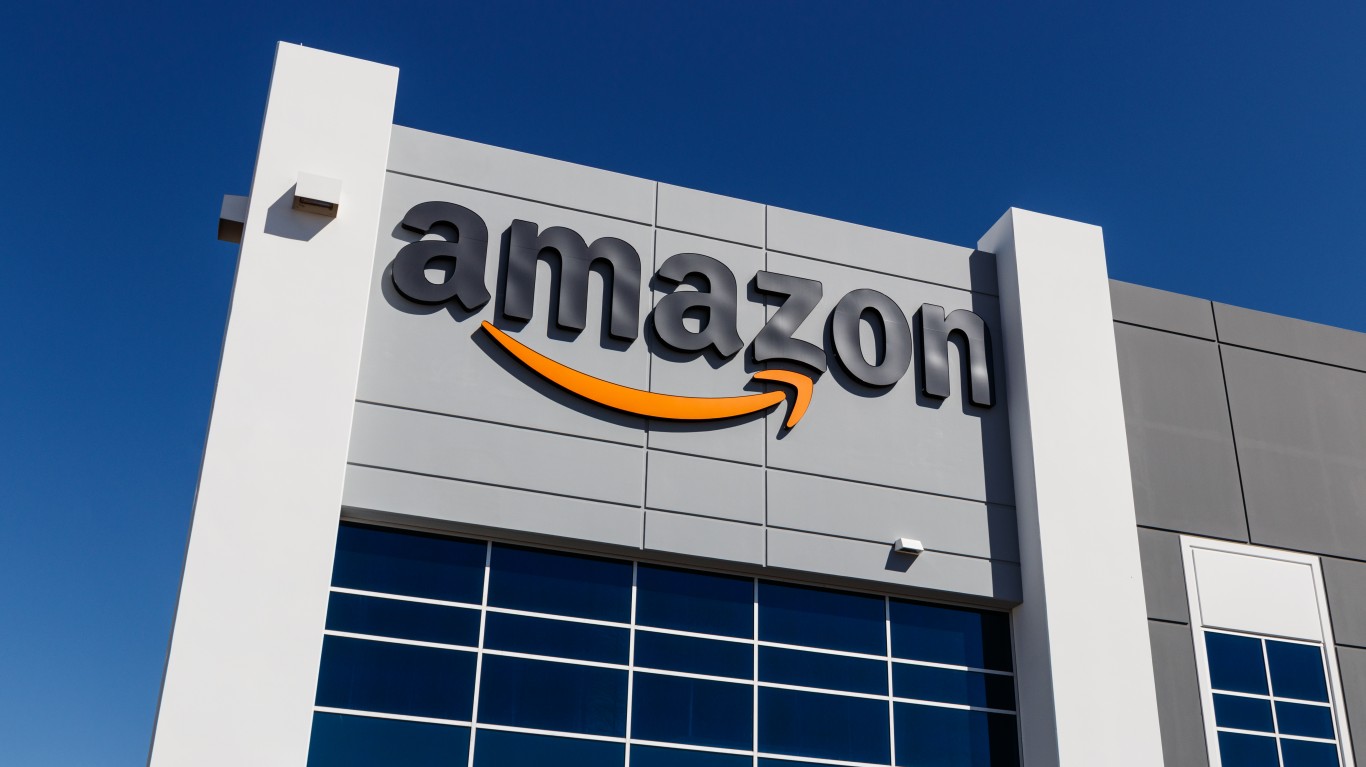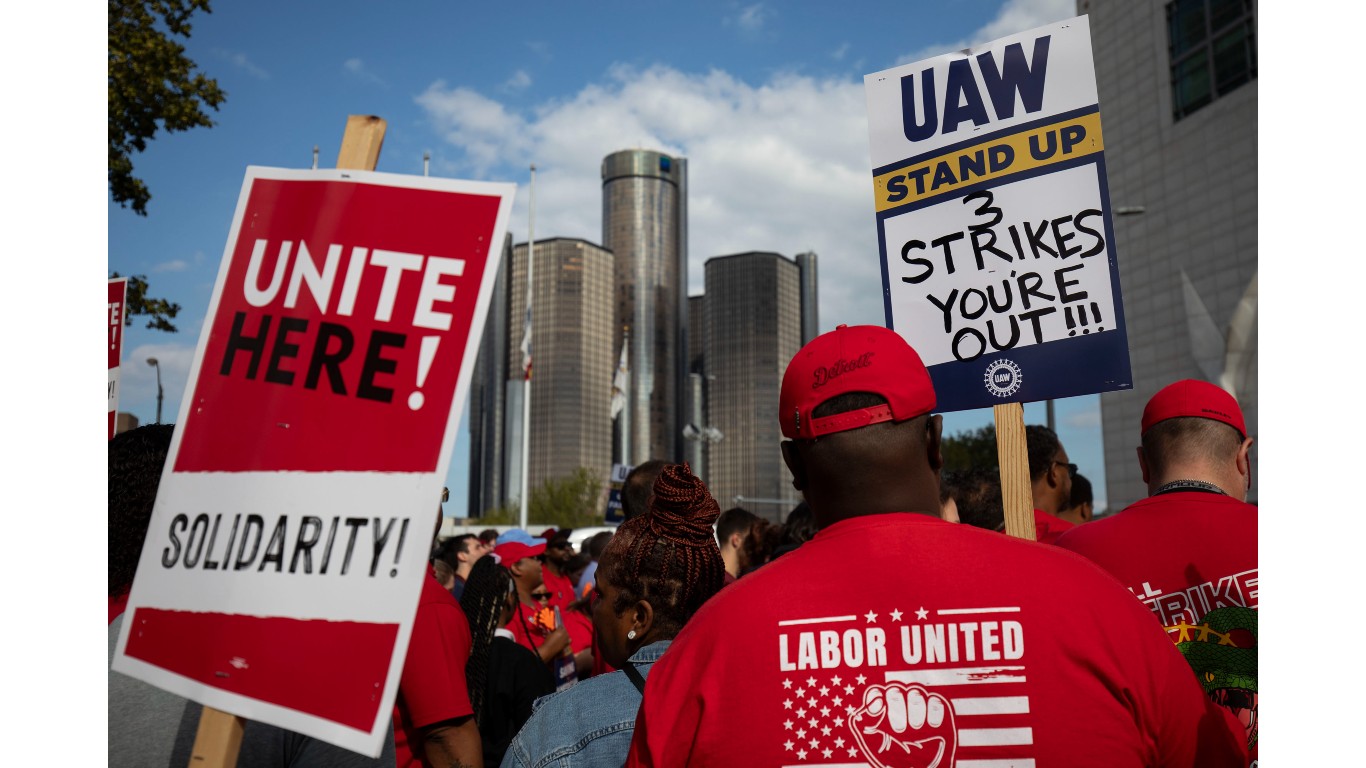
The Federal Trade Commission (FTC) has asked a federal court to force Amazon to sell off some of its assets. The government agency says Amazon has cornered the e-commerce market, at least as far as third-party retailers go. One retailer said, according to Reuters, “We have nowhere else to go and Amazon knows it.” It is not the first time America’s largest companies have been threatened with similar action. (These American companies have the worst reputations.)
[in-text-ad]
Big companies have been broken up in the past. AT&T is the most recent example, in 1982. In 2000, the same thing nearly happened to Microsoft. Amazon could be the next company to which this happens.
Amazon has two major divisions, one of which feeds the other financially. The separation of these would be logical. The first is the massive e-commerce operation. In the most recent quarter, Amazon’s North American and international e-commerce operations had a combined revenue of $112 billion and an operating income of $2.2 billion. For years, it has taken market share from America’s retailers, both their online and brick-and-mortar operations. However, its margins remain tiny.
Amazon Web Services is arguably Amazon’s most successful business. The largest cloud computing operation in the world, it primarily competes with Microsoft and Google. It is growing rapidly. Its revenue in the most recent quarter rose 12% to $21.4 billion. Its operating income was $5.14 billion.
The subsequent division would happen within e-commerce. Amazon Prime Video competes with Netflix, Disney, Hulu and other streaming services. Prime Video has over 200 million subscribers. That makes it slightly smaller than Netflix but larger than the others. Amazon does not break out its revenue. The service is offered as part of Amazon Prime, which is intended to build Amazon’s e-commerce business. The spin-off of video would further weaken Amazon’s dominant position in the e-commerce market.
The final part of Amazon that would need to be separated into pieces is its cash, cash equivalents and marketable securities hoard. The total of these is about $50 billion. There is no simple calculator for distributing this among the new companies.
In a breakup, each Amazon shareholder would get shares in the three new companies. This would allow them to pick which of the three are winners and which are not.
Take Charge of Your Retirement: Find the Right Financial Advisor For You in Minutes (Sponsor)
Retirement planning doesn’t have to feel overwhelming. The key is finding professional guidance—and we’ve made it easier than ever for you to connect with the right financial advisor for your unique needs.
Here’s how it works:
1️ Answer a Few Simple Questions
Tell us a bit about your goals and preferences—it only takes a few minutes!
2️ Get Your Top Advisor Matches
This tool matches you with qualified advisors who specialize in helping people like you achieve financial success.
3️ Choose Your Best Fit
Review their profiles, schedule an introductory meeting, and select the advisor who feels right for you.
Why wait? Start building the retirement you’ve always dreamed of. Click here to get started today!
Thank you for reading! Have some feedback for us?
Contact the 24/7 Wall St. editorial team.
 24/7 Wall St.
24/7 Wall St.

